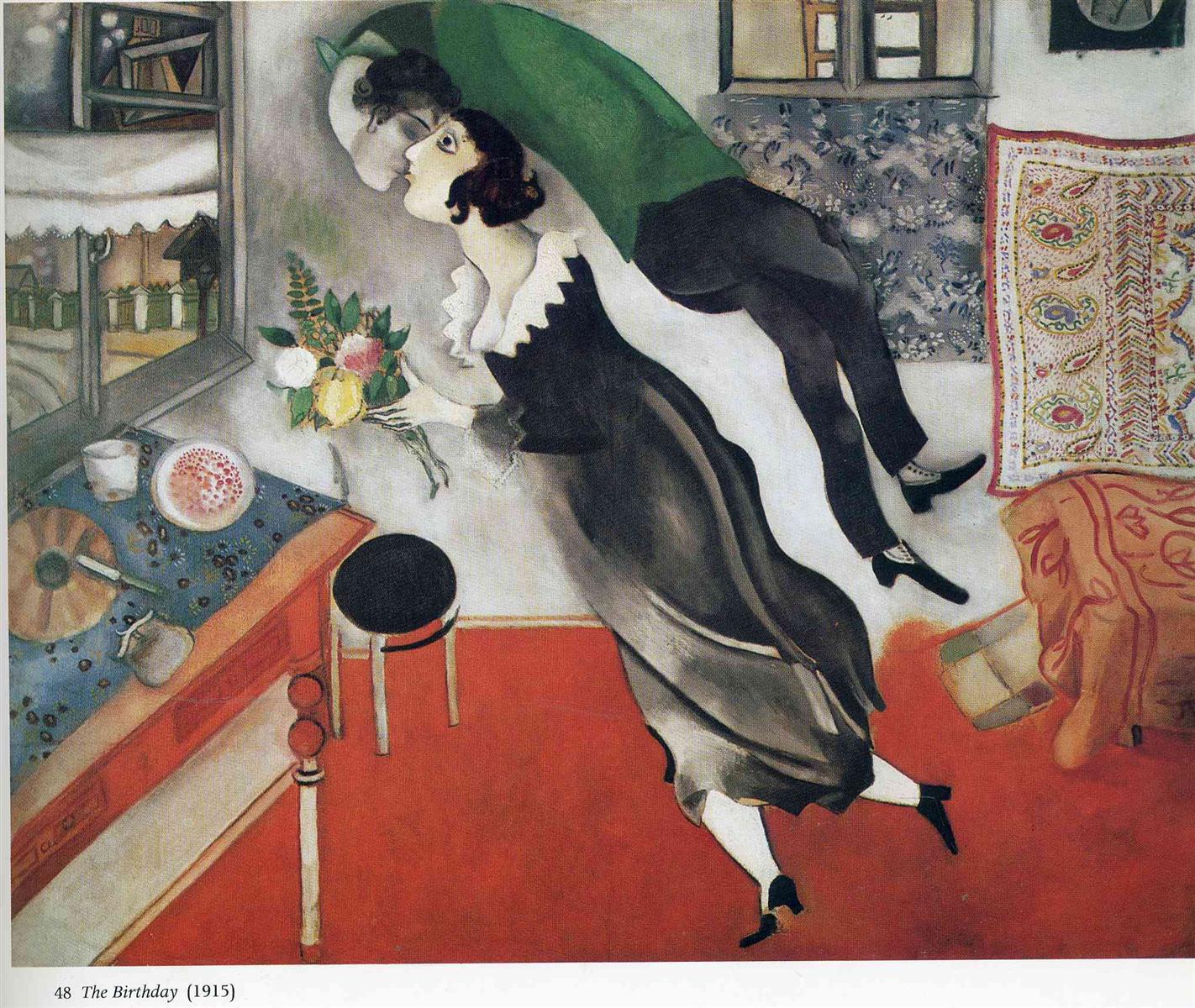[feature_headline type=”left, center, right” level=”h2″ looks_like=”h6″ icon=””]We cannot foresee how our words will be heard, but we are given compassion, like we are given grace. — Fyodor Tyutchev [/feature_headline]
In 1978 my father, Sergey Maslov, started a small underground (samizdat) magazine in St.Petersburg (then Leningrad), called ‘Summa’ (‘The Sum’). It was a really small affair: only eight copies ‘printed’ (meaning ‘typewritten’), four for Leningrad and four for Moscow.

Typewritten copies, sometimes barely readable: that’s the form our most interesting reading took in those days. That’s how I first read Orwell’s “1984”, and Huxley’s “Brave New World”, and even something as seemingly apolitical and innocent as Nabokov’s “The Gift”. Since the copies were so scarce, one often had to read really fast (it wasn’t unusual to get a book for one night only). Both production and distribution of these uncensored texts were punishable offences, because they were deemed, by virtue of being uncensored, “anti-Soviet” (the reading of them, remarkably, wasn’t illegal).
My father started “The Sum” because he painfully felt the chasm between two schools of free (uncensored) political thought: atheist, Europe-oriented liberals and orthodox, conservative, anti-Western “Slavophils”. This chasm began when Peter the Great first tried to “westernise” his empire in the beginning of the eighteenth century, and then kept reemerging whenever a brief period of even limited political freedom occurred in the Russian history. As crippled as the freedom was in the seventies, it was still a freedom compared with Stalin’s times — and the chasm was there again. “The Sum” was an attempt to heal it, to inspire mutual understanding, and my father used the Russian word for compassion to describe the only path to it he saw.
Although I translated the Russian word he used (сочувствие) correctly just now, it has a broader semantic range than the English ‘compassion’. At one point in “The Unbearable Lightness of Being”, Milan Kundera halts the story to make a similar linguistic point. Here is what he says:
“All languages that derive from Latin form the word ‘compassion’ by combining the prefix meaning ‘with’ (com-) and the root meaning ‘suffering’ (Late Latin, passio). In other languages, Czech, Polish, German, and Swedish, for instance — this word is translated by a noun formed of an equivalent prefix combined with the word that means ‘feeling’ (Czech sou-cit, Polish współ-czucie, German Mit-gefühl, Swedish med-känsla). In languages that derive from Latin, ‘compassion’ means: we cannot look on coolly as others suffer; or, we sympathise with those who suffer. Another word with approximately the same meaning, ‘pity’, connotes a certain condescension towards the sufferer (French, pitié; Italian, pieta; etc.). ‘To take pity on a woman’ means that we are better off than she, that we stoop to her level, lower ourselves.
That is why the word ‘compassion’ generally inspires suspicion; it designates what is considered an inferior, second-rate sentiment that has little to do with love. To love someone out of compassion means not really to love.
In languages that form the word ‘compassion’ not from the root ‘suffering’ but from the root for ‘feeling’, the word is used in approximately the same way, but to contend that it designates a bad or inferior sentiment is difficult. The secret strength of its etymology floods the word with another light and gives a broader meaning: to have compassion (co-feeling) means not only to be able to live with the other’s misfortune but also to feel with him any emotion — joy, anxiety, happiness, pain. This kind of compassion (in the sense of soucit, Polish współczucie, German Mitgefühl, Swedish medkänsla) therefore signifies the maximal capacity of affective imagination, the art of emotional telepathy. In the hierarchy of sentiments, then, it is supreme.”

English, of course, doesn’t (strictly speaking) derive from Latin, but it has a long-standing habit of borrowing words without translating them part-by-part, and that’s how Middle English borrowed the word ‘compassion’ from Old French. Its inner structure has had no power over its meaning, since the word ‘suffer’, albeit also originally from Latin, had been borrowed even earlier, via the Anglo-Norman route. I suppose ‘compassion’ could have linked itself to the word ‘passion’ in the course of language evolution, but it didn’t — so for the sake of Kundera’s sweeping comparison, English belongs with French and Italian.
I am not completely sure Kundera is right about all languages that created this word by translating its components (as with-feeling, or co-feeling); the secret power of word’s inner structure doesn’t necessarily work in the same way even in similar circumstances. But, obviously, he is right about Czech — except he also felt the need to make this point within his novel, which, after all, was written in Czech. Come to think about it, one doesn’t go into lengthy linguistic asides for every word one uses in a novel, unless there is a certain semantic fluidity, maybe a not fully realised potential, some intrinsic variability in the word’s meaning (I wrote about this potential for instability in words describing inner experiences in an earlier post).
Or maybe this thought crossed my mind just because I feel this instability in Russian. Its word for ‘compassion’ has the same inner structure as in Czech or German, translated part-by-part from Greek, as co-feeling, so the structure exerts a similar pressure on its meaning. Since the structure is quite transparent, the word would connect itself — quite literally, on the neural level — to feeling with in each new brain where it is ‘replicated’ in childhood. My own version of this word is certainly inherited from my father, but I am not sure this particular ‘mutation’ of its meaning has ever been common among the speakers of Russian. I remember he used to separate the prefix from the root by a hyphen in writing, со-чувствие, as though he wanted to re-awaken this inner structure and its semantic potential in his readers’ minds.

The meaning he had in mind was, I believe, close to Kundera’s ‘emotional telepathy’, but more intellectual than romantic: it was co-feeling as a path to understanding another’s thoughts, truly understanding them; a path that lies through feeling another’s feelings: the feelings that fuel thoughts, and the feelings invoked by thoughts. A synthesis between co-feeling and co-thinking. At least that’s how I understood him.
This variation on the theme of compassion can be traced back to a poem by Fyodor Tyutchev, a nineteenth century Russian poet. He wrote: We cannot foresee how our words will be heard, but we are given compassion, like we are given grace. Like the word ‘grace’ points to the experience of unity with the divine, so ‘compassion’, in this sense of co-feeling, points to the experience of unity with other human beings.
Both Kundera’s experience of the supreme form of romantic love, and my father’s experience of the supreme form of intellectual communion — both these experiences certainly exist, which is to say, they are possible. But I am afraid they don’t really have names, not even in Czech and Russian, respectively, because these meanings are hidden – drowned, as it were, in the semantic pond of compassion. In his linguistic aside, Kundera tells us that the words for co-feeling are used “in approximately the same way” as their French (and English) counterparts (and if they are used in approximately the same way, then, mutatis mutandis, they have approximately the same meaning).
I am afraid these experiences belong to what Hannah Arendt calls, following René Char, “inheritance with no will-and-testament”, a treasure occasionally found by some, but lost again and again — because there is no name, no “tradition which selects and names, which hands down and preserves, which indicates where the treasures are and what their worth is” (Hannah Arendt “Between Past and Future”). And that’s a pity, because these are glorious treasures, aren’t they?
But what can one do? No one can create a tradition by themselves (it requires a multitude by definition), but anyone can contribute. It’s always like this with languages: no single speaker can change a language, but everyone can add to a language change — just by talking in a certain way, and thereby influencing others. It’s a peculiar process, language change: with few exceptions, it’s impossible to pinpoint its beginning, because a novel usage would pop up here and there, sometimes for a long time, without any apparent long-term effect. And then, out of the blue, it takes off and spreads — and the change is complete in what seems like no time, as though it has always been that way.
Isn’t that what Milan Kundera was doing with his aside about a particular meaning of soucit — willing the experience into the future? And my father with his consistent use of сo-чувствие — both in “The Sum”, and in other writings, and in talking? It certainly feels like an inheritance, willed to me in the most primal sense — I’ve always known where this treasure is, and its worth (even if it took me some time to realise it). Finding it, though — ay, there is the rub.